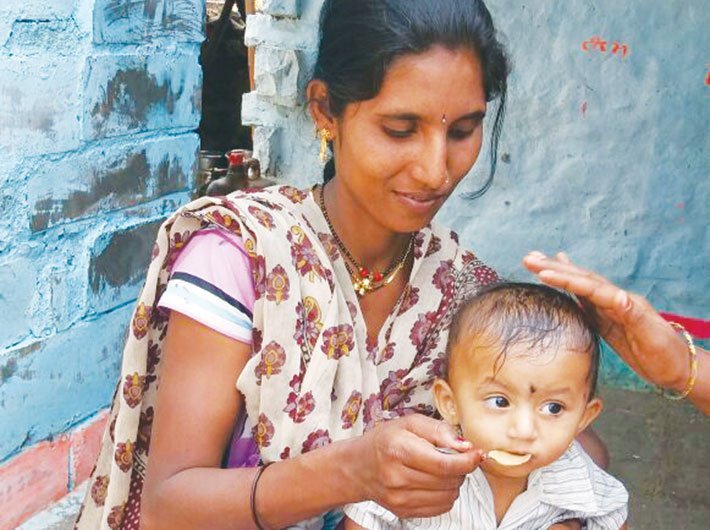It did not surprise me when the India: health of the nation’s states, the India state-level disease burden initiative report released recently reported malnutrition the prime risk factor driving the most deaths and disability in Madhya Pradesh. Even in 1990 malnutrition was the frontrunner and after 26 years it retains the topmost position. Its intensity might have dropped a little in all these years but it still affects more than 70 percent children. Some are affected directly through nutritional deficiencies while many indirectly fall prey to malnutrition through diarrhoea, lower respiratory tract infections and neo-natal disorders since birth due to poor health of mothers.
The situation must have been grave in 1990s when chronic form of malnutrition like Marasmus and Kwashiorkor were prevalent. Situation has now changed. We have overcome the extreme. But why malnutrition continues to persist to an extent that India was ranked 100th among 119 nations in Global Hunger Index, 2017? Why even after 26 years the issue is in a lingering state?
Both answer and solution to the problem are given in the first National Nutrition Policy, 1993. It mentions of a ‘vicious cycle’ where poverty leads to low intake of food and nutrients resulting in undernutrition and repeated attacks of diseases and infections. The long term effect starts from here with faltered growth and stunted development as he/she turns into an adult.
Subsequently, it impacts the productivity and reduces the capacity to earn. Hence, he gets back to square one –poverty. No denying, the cycle continues to exist till today. The real burden of it is being faced by scheduled tribes. Even health experts
say, scheduled tribes are worst affected with malnutrition. They are followed by scheduled caste and others.
I had the opportunity to spend almost a month with tribals of Mandala and Balaghat districts of Madhya Pradesh to study the prevalence of malnutrition. I personally felt tribal, especially Baiga with whom I closely worked, are more vulnerable now. They don’t have any resource of livelihood except migrating and cultivating on the meagre amount of their agricultural land holdings.
Surprisingly, there are couple of Baiga dominated villages where families don’t have a single landholding. Baigas are forest dwellers. They were never into agriculture like Gonds, an indigenous tribe. They fulfilled their needs through forest produce and little farming until they were not thrown out of their lands. In last one decade they have been exposed to economic activities, what we call as ‘development’. They have no idea what it means. Their only focus is to earn somewhere between Rs 500 and 700 a month to afford meals for the family. They are trapped in that ‘vicious cycle of poverty’. Simply migrating for work is the only option. It gives them money but at the same time their children are unknowingly pushed into the same cycle as many take the family along with them. It means improper care of the child as both husband and wife works and the child is deprived of education. But can we really gauge the psychological impact it has on the child? No.
Irony is that these migrating families are not beneficiaries of any social security schemes. Meanwhile, those staying in their villages still get benefits of Public Distribution System (PDS), Integrated Child Development Scheme (ICDS) and Midday Meal (MDM). These are certain fragmented initiatives giving only food security to a limited extent. It does not intervene the vicious cycle of poverty directly. Certainly, National Rural Employment Guarantee Act (NREGA) was a crucial scheme hitting directly the core issue but it is no longer a scheme driven by people’s requirement.
The problem of malnutrition can only be addressed seriously if government provides strong support system to the vulnerable. They need to give a boost to agriculture, MNREGA and small and medium scale enterprises, create a strong social security network that migrating population can easily get benefits wherever they go. The ‘vicious cycle of poverty’ and malnutrition can only be broken through strong government will.

